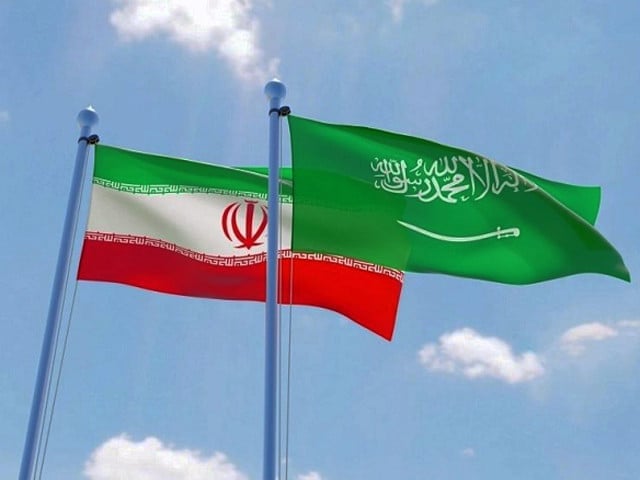
Less than three months after agreeing to restore diplomatic ties, long-time regional rivals Iran and Saudi Arabia have recently taken another significant step toward full reconciliation.
In the presence of senior officials from both sides, the Iranian Embassy in the affluent diplomatic enclave in northwestern Riyadh was reopened last week, seven years after it was locked down.
A day later, Iran’s consulate general and its permanent mission to the Organization of Islamic Cooperation (OIC) in the port city of Jeddah were also reopened.
The consulate general in Jeddah had been active ahead of the annual Hajj pilgrimage, but a formal reopening took place on Wednesday in the presence of Iran’s Deputy Foreign Minister Alireza Begdali and other officials.
Although Saudi Arabia is yet to finalize plans to reopen its diplomatic missions in Iran, the reopening of the Iranian Embassy and consulate caps two years of efforts mediated by Iraq, Oman and China to help the rivals bury the hatchet.
“It was obvious Saudi Arabia would not be the first to reopen its embassy in Tehran, even though it has reportedly appointed its next ambassador to Iran,” Meysam Mirzapour, a Tehran-based political analyst and researcher, told Anadolu.
“But the way this process of reconciliation has progressed since March shows diplomacy works and is actually working.”
The announcement about the reopening of Iran’s diplomatic missions came days after the top Iranian and Saudi diplomats held talks on the sidelines of a recent meeting of BRICS, a multination bloc consisting of Brazil, Russia, India, China and South Africa, in Cape Town.
It was the second meeting between Hossein Amir-Abdollahian and his Saudi counterpart Prince Faisal bin Farhan, following talks on April 6 in China's capital Beijing.
Iran and Saudi Arabia severed diplomatic ties in January 2016 after the Saudi Embassy in Tehran and consulate in Mashhad were stormed by angry mobs following the execution of a Shia cleric in Saudi Arabia.
In April 2021, the estranged neighbors started talks facilitated by Iraq and Oman, and after nearly two years, a breakthrough was achieved courtesy of their common ally China.
Late last month, Iran appointed Alireza Enayati, a senior diplomat and former envoy to Kuwait who was closely involved in the negotiations, as its new ambassador to Saudi Arabia.
What does the detente entail?
Normalization between Iran and Saudi Arabia has had a ripple effect across the region, paving the way for similar rapprochement between Tehran and other estranged Arab countries.
After Riyadh cut ties with Tehran in January 2016, many of its allies also followed suit or downgraded relations, including the UAE, Jordan, Bahrain, Kuwait, and Egypt.
The UAE and Kuwait have already restored diplomatic ties with Iran and exchanged ambassadors, while efforts to revive Tehran’s relations with Bahrain, Jordan and Egypt have gained pace.
Experts believe the Iran-Saudi rapprochement augurs well for the two countries and the wider region.
Seyyed Hadi Seyyed Afghahi, a former Iranian diplomat and expert on Middle East affairs, told Anadolu that both countries are looking for “security and economic benefits.”
“Iran can work closely with Saudi Arabia in the Organization of the Petroleum Exporting Countries (OPEC) to increase its oil exports, or in the Organization of Islamic Cooperation (OIC) to ease divisions between member countries and promote peace in the region,” he said.
He also referred to the “positive impact” of the Iran-Saudi detente on various conflicts in the region.
“In Yemen, Riyadh is engaged in serious peace talks with Ansarullah (Houthi rebel group). In Syria, we see a normalization drive between Damascus and Riyadh. In Lebanon, political parties are now actively pursuing efforts to end a years-long political stalemate by picking a president,” said Afghahi.
He, however, hastened to add that there is still room for “greater cooperation” between the two sides.
Israeli shadow
Enayati, the newly appointed Iranian ambassador to Riyadh, has warned that Israel wants to “disrupt” relations between Tehran and Riyadh.
In an interview with Iran’s Arabic-language broadcaster Al-Alam, he said many countries have welcomed the revival of Iran-Saudi diplomatic ties, but some, like Israel, find it “unbearable.”
The normalization between Iran and Saudi Arabia also comes amid an aggressive push by the administration of US President Joe Biden for rapprochement between Saudi Arabia and Israel.
Iran and Israel, however, see each other as arch-foes and share no political or diplomatic relations.
Secretary of State Antony Blinken, who was in Saudi Arabia last week, said normalization of ties between Israel and its neighbors was a priority for the US.
Also read: Iran says prisoner exchange with US could happen soon
Afghahi said the US has been “working for years” to broker peace between Riyadh and Tel Aviv, but the fact that Saudi Arabia prioritized Iran shows fissures in the Riyadh-Washington relationship.
“Israeli politicians have expressed dismay over the normalization agreement between Iran and Saudi Arabia, and they have pushed the US to do something about it,” he said.
“The US is certainly willing to stop the normalization process or slow it down, but so far, it hasn’t been able to do that.”
‘Massive’ trade potential
Last month, the two countries also agreed to resume bilateral trade, with top Iranian officials saying the process to start exports to Saudi Arabia had begun.
Saudi Finance Minister Mohammed al-Jadaan has also said that there are a “lot of opportunities” for investments in Iran.
Last month, Economic Affairs and Finance Minister Ehsan Khandouzi became the first Iranian minister to visit Saudi Arabia, where he participated in the annual summit of the Islamic Development Bank and held a series of meetings with Saudi officials on reviving trade ties, according to official sources.
Separately, local media quoted Farzad Piltan, West Asia director at Iran’s Trade Promotion Organization, as saying last month that Tehran is eyeing $1 billion in trade with Saudi Arabia.
The figure could be pushed up to $2 billion, with a focus on steel, saffron, carpets, cement, dried fruit, and other products, he said.
The reopening of Iran’s diplomatic missions in Saudi Arabia, Mirzapour told Anadolu, will revive and give impetus to trade ties between the two countries.
He said there is “massive potential” for trade between the two countries.
“What Iran needs at the moment are investments, and Saudi Arabia has already expressed willingness and political will, as was evident from the Saudi finance minister’s remarks,” he said.
“Of course, there are obstacles, such as banking restrictions and legal and operational ambiguities that investors may confront, but I am sure the two sides will be able to find a way around them.”
Experts believe Saudi Arabia can invest in areas not covered by sanctions or where there is a possibility of circumventing the curbs.
Riyadh can also seek waivers from Washington in some cases.
“It is too early to say what course this relationship takes ... but so far it has been a good and smooth restart,” said Mirzapour.


1727778647-0/diddy-(16)1727778647-0-165x106.webp)

1732014631-0/BeFunky-collage-(71)1732014631-0-165x106.webp)

1731996868-0/Untitled-design-(7)1731996868-0-270x192.webp)














COMMENTS
Comments are moderated and generally will be posted if they are on-topic and not abusive.
For more information, please see our Comments FAQ